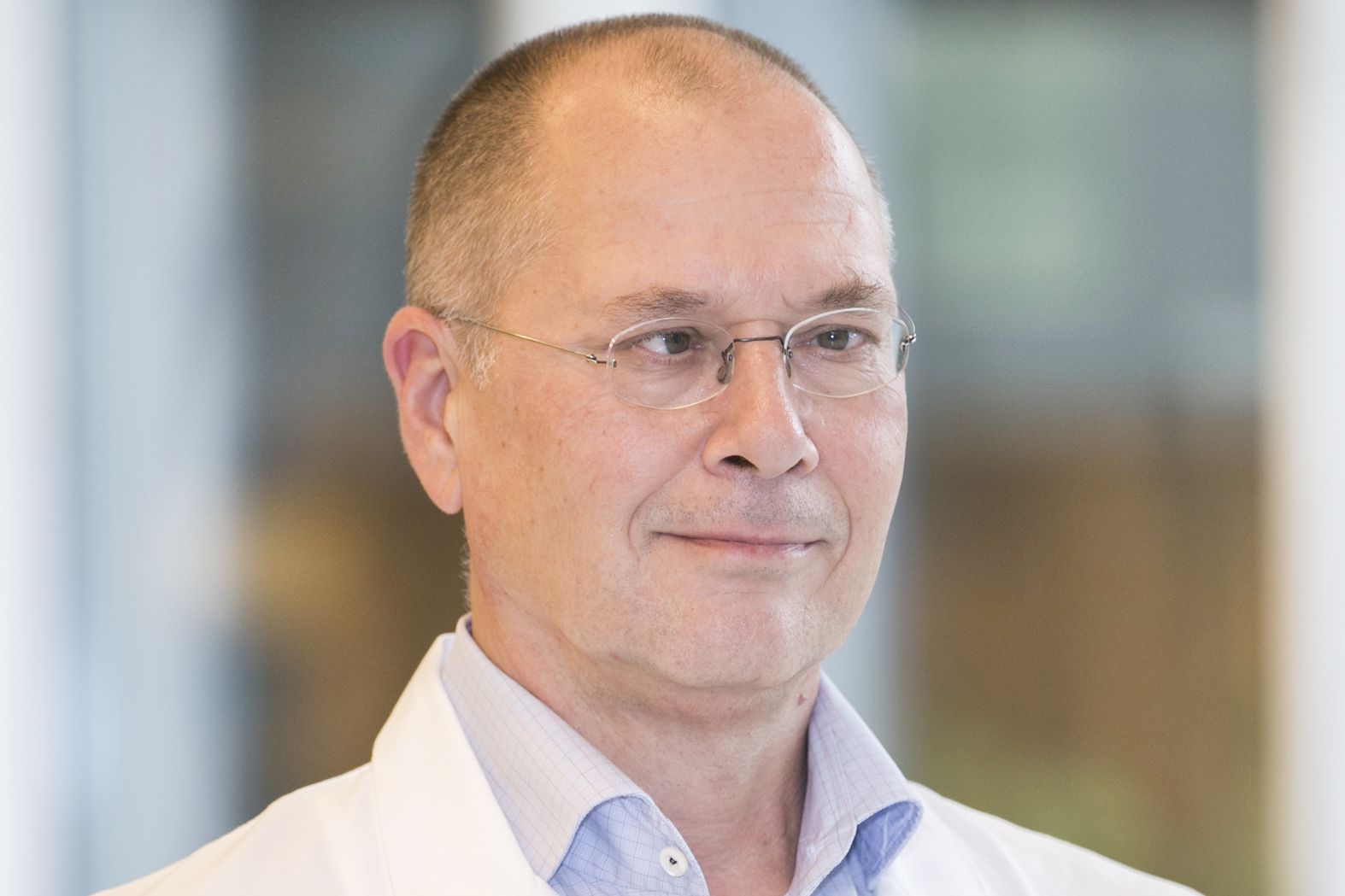
(Vienna, 31 October 2018) On 01 November 2018, Thomas Berger will take over the Chair of Neurology at MedUni Vienna. Until recently, he was Deputy Director of the Department of Neurology at MedUni Innsbruck.
Thomas Berger’s main research interests are neuroimmunology and Multiple Sclerosis (MS). So far he has been Principal Investigator for more than 70 clinical (multi-centre) trials relating to MS and NMO (Neuromyelitis optica) and has identified numerous immunopathogenetic subtypes and biomarkers. In addition, he has implemented and coordinated the Austrian MS treatment register and the Austrian Neuromyelitis optica database.
At MedUni Vienna, Berger wants his neuroimmunology team to work closely with the Institute of Neurology and the Division of Neuroimmunology at the Center for Brain Research to develop his research interests of the last 25 years, in particular the associated biomarker research. "The Department of Neurology will therefore have a scientific and clinical focus in the area of neuroimmunology in general," explains Thomas Berger.
In addition to this, Berger wants to intensify and expand additional research areas (including strokes, dementia-type diseases, epilepsy, motor disorders, neurooncological diseases, migraines and other neurological pain syndromes, diseases of the peripheral nervous system and musculature) in a patient-centred and fundamental way based on existing scientific working groups and the genetic laboratory of the Neurology Department – with the aim of developing personalised strategies in the diagnosis, prognosis and treatment of neurological diseases." Here we will likewise intensify our collaboration with the excellent clinics and institutes of the Neuroscience Cluster and, as a priority, continue to promote close cooperation between clinical neurosciences by establishing the Comprehensive Center for Clinical Neurosciences."
Expansion of neurological intensive-care medicine
A new field of research at MedUni Vienna will be neurological intensive-care medicine. Berger wants to create the appropriate structure for this (Neurological Intensive-Care Unit very closely linked with the Comprehensive Stroke Unit that is to be set up) and recruit staff with proven clinical and scientific expertise.
These two areas – Neurological Intensive-Care Medicine and Comprehensive Stroke Management – will not only meet the requirements of the very latest, top-quality medicine but also close formal gaps in undergraduate and postgraduate (specialist) training, which will mean it will be possible to complete the modules "Advanced Stroke Management" and "Neurological Emergency, Intermediate and Intensive-Care Medicine" on the specialist syllabus at the Department of Neurology.
Practical training and promotion of young doctors and researchers
"It is my ambition to deliver the neurological teaching content on the undergraduate and postgraduate syllabuses in a lively and meaningful way," explains Berger, "Clinical neurology is predestined to teach neuroscientific-neurological associations ("from molecule to neurological disease and treatment") in a practical and research-oriented way." For example, many neurological diseases – such as Multiple Sclerosis – lend themselves to teaching about gender-specific aspects. "In keeping with the explicit scientific orientation of the Department of Neurology, it is very important for me to increase the Department's participation in the offerings and content of the Neuroscience PhD course, thereby systematically ensuring the availability of young neuroscientists at the Department and at participating institutions."
To achieve his goals, Thomas Berger is also looking to establish further collaborative arrangements and build networks, so that he is not restricted to the recognised partner clinics and institutions of the Neurocenter and Neuroscience Cluster. "I want to establish collaborations with the MedUni Vienna institutions, with which our Department has or could have clinical and scientific interfaces." Furthermore, it is his declared aim to create more international collaborations so that the Department of Neurology can cement its position as an essential partner in national and international networks based on its clinical, scientific and educational expertise.
About Thomas Berger
Thomas Berger studied medicine in Vienna and, on graduating, worked at the Neurological Institute of the University of Vienna in the Division of Experimental Neuropathology and Neuroimmunology with Hans Lassmann (now MedUni Vienna's Center for Brain Research) and as junior doctor at the Department of Neurology (Division of Neurological Rehabilitation) of the University of Vienna (now MedUni Vienna). In 1995 he moved to the Department of Neurology in Innsbruck. There he completed his specialist training in neurology and psychiatry, gained his postdoctoral qualification in neurology and completed a Master’s degree in health economics.